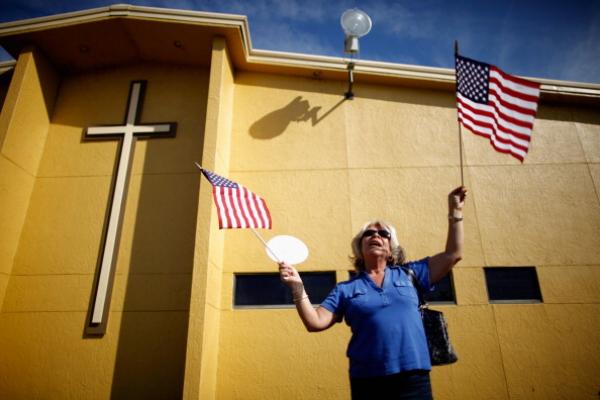In Tuesday’s Mississippi and Alabama primaries, about eight of 10 voters identified as evangelical, locking in victories for former Sen. Rick Santorum, and proving once again the importance of the evangelicals in the election.
Presidential hopefuls are again battling it out to be the God candidate, but the tide of the so-called “evangelical vote” seems ever-shifting. Santorum—a Catholic—is doing better to court most evangelicals, while former Massachusetts governor Mitt Romney — a Mormon — is beating out Santorum among Catholics. And according to a recent poll, Republicans in the Deep South are still questioning whether President Barack Obama is a Muslim.
Religion matters.
But what does the “evangelical vote” even mean anymore? And can any one candidate really claim it? Even with Santorum’s win Tuesday, a significant number still fell into Romney’s column — and that’s just among Republican evangelicals. Obama was able to draw some evangelical support in 2008 and could garner more in November.
Read the Full Article

